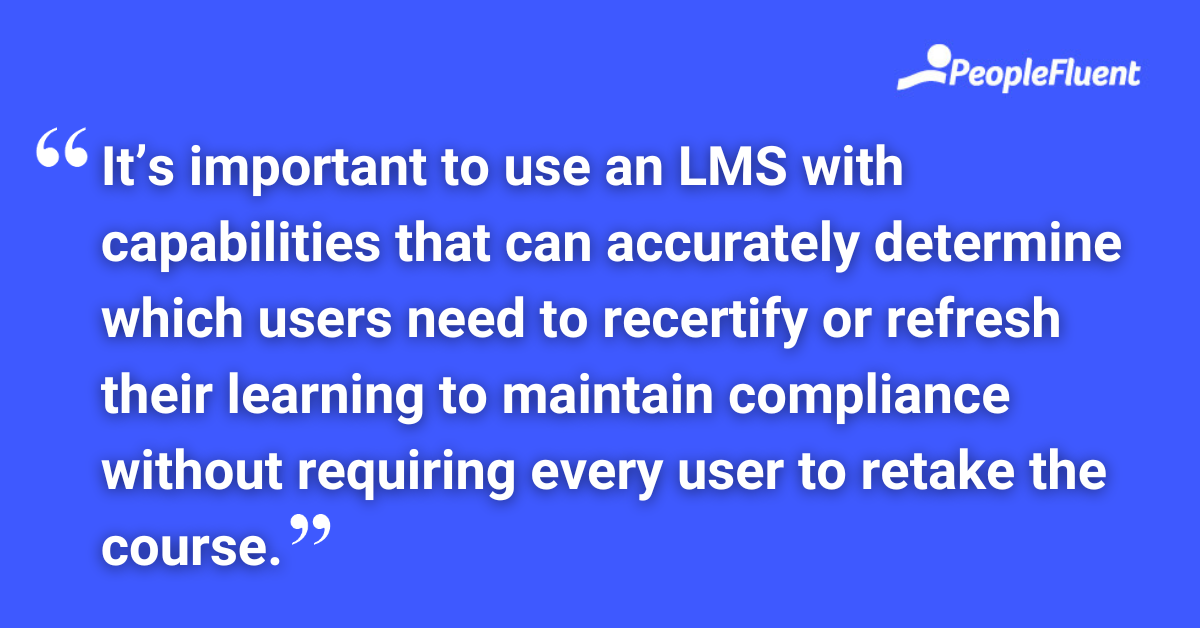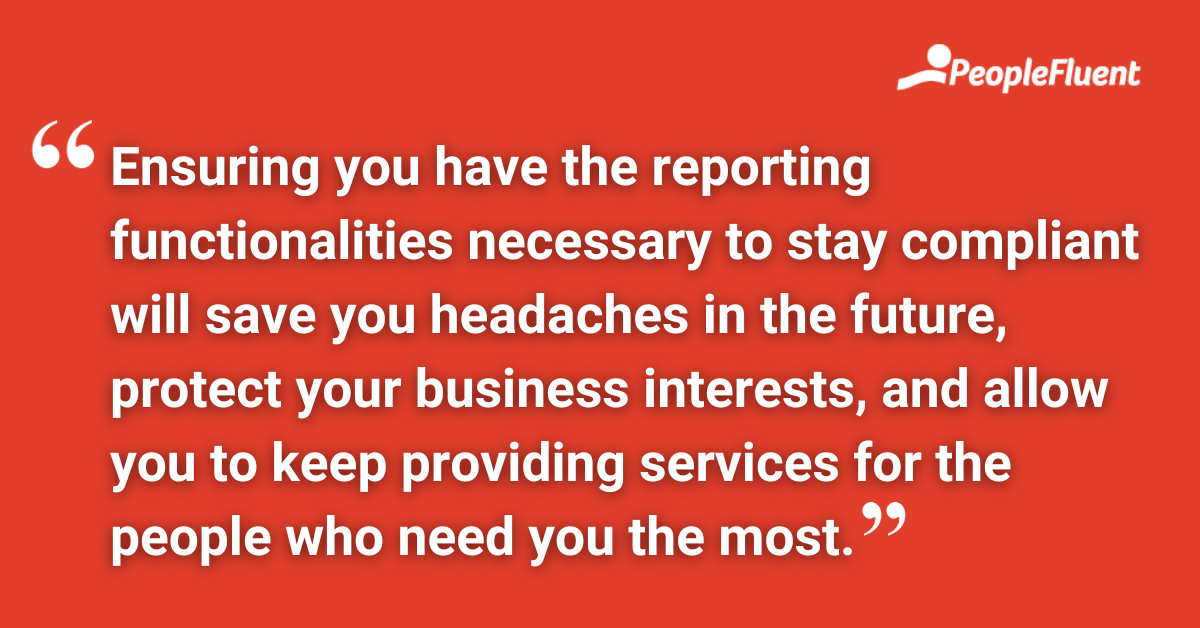Published: Sep 6, 2022Time to read: 5mins Category: Learning
How Compliance Training in Your LMS Protects Your High-Consequence Organization
All business sectors use compliance training measures to adhere to mandates and guidelines—but not all corporate education programs are created equally. That’s because a one-size-fits-all approach to compliance training delivery would never be able to meet the specific needs of each industry.
The compliance requirements of a SasS organization, for example, may be vastly different from those of a pharmaceutical company. Inadequate compliance training can be critically detrimental to organizations in high-consequence industries. Businesses in healthcare, aviation, energy, and any field directly affecting human lives need to ensure their employees are sufficiently trained on safety standards and regulations. Not doing so could lead to catastrophic results.
As such, it’s essential to choose the training option that best meets your specific organization's needs. In the case of high-consequence industries, your learning management system should include robust compliance training features to safeguard your employees, your organization, and the people you serve.
MORE ON COMPLIANCE | ‘Maximize Your LMS: 5 Ways to Go Beyond Compliance Management & Reporting’
Why Is Compliance Training Important?
Although each industry has its own regulations and guidelines to follow, all organizations need to teach their employees how to perform their jobs safely. For high-consequence industries, compliance training and documentation are mandatory at the state, national, or international level.
Ignoring compliance training could lead to lost revenue, lawsuits, or worse. In other words, proper compliance training mitigates risks for an organization. According to former US Department of Health and Human Services Inspector General, Richard P. Kusserow, an organization that can’t show evidence of a proper training program increases its executive board’s exposure to liability if something goes wrong.
Organizations are also less likely to be successful in suggesting that an individual employee is solely or partially responsible for an incident if the organization doesn’t have sufficient documentation of its compliance training efforts. Businesses can’t claim that an individual merely ignored their training if the company doesn’t have proper documentation of what education was offered to and completed by the employee in question.
Effective compliance training programs can also save organizations money by reducing the likelihood of expensive errors. Properly training employees during their onboarding process won’t eliminate all mistakes, but it can minimize them.
Aside from the legal and financial implications of improperly training employees, it’s good practice to educate your new hires on the guidelines and legal regulations your organization must follow. This allows your newest team members to begin work confidently while also encouraging a culture of safety and excellence.
It’s also equally important for seasoned employees to take refresher courses on compliance topics on a regular basis to keep everyone updated on the latest rules and regulations.
Simply put, compliance training is the right thing to do!

MORE FROM THE BLOG | ‘3 Ways an LMS Takes the Confusion Out of Compliance Issues’
Complex Compliance Requirements Need Robust Training Solutions
Organizations that aren’t part of a highly regulated industry can most likely manage their compliance needs with any learning system. A basic “click-through” training course—while not necessarily a riveting experience—will give employees the information they need to work within the company’s parameters and protect organizations from potential liabilities.
On the other hand, high-consequence organizations will need a learning management system that can handle sophisticated and complicated requirements. Depending on the industry, these organizations will need to consider the depth of functionality their LMS has to offer in areas like:
- Employee attendance and course completion
- Compliance recertification and reminder notifications
- Analytics and data reporting
For example, external auditors will need to know the actual dates that employees complete their required compliance courses. If your employees attend any in-person training, your instructors might not record attendance on the actual day that employees completed the course. This could create issues or delays for you during an audit. An LMS with sophisticated reporting capabilities could help you avoid an attendance headache, regardless of whether participants complete the course in person or online.
A useful feature of many corporate learning systems is the ability to send users automated reminder emails about training they need to complete. For businesses operating in fields experiencing regulatory changes, it’s important to use an LMS with capabilities that can accurately determine which users need to recertify or refresh their learning to maintain compliance without requiring every user to retake the course.
Compliance auditors will also require detailed information about your company’s training programs. Your LMS needs to have reporting capabilities that can quickly—and accurately—satisfy a compliance auditor’s requests for documentation. This protects your business from potential risk and loss of funds.

JUST FOR YOU | ‘4 Steps to Take to Prepare for a Compliance Audit’
Ensure Your LMS Can Manage a Compliance Audit
It can be an unsettling feeling to have an auditor arrive unannounced. Before you commit to a training program, you can ease the stress by piloting your company’s unique use cases for a learning system. Take the time to discuss your needs with potential vendors so you can be sure when the auditor shows up at your door, you’ll be ready with all of the reports and data needed to satisfy their requests.
Your high-consequence organization provides valuable and necessary services to all kinds of people. The training your employees receive to operate safely—and the LMS you use to teach them—are just as important as the people you serve. Ensuring you have the reporting functionalities necessary to stay compliant will save you headaches in the future, protect your business interests, and allow you to keep providing services for the people who need you the most.
KEEP READING | ‘The 13 Must-Have Features of a Learning Management System’
Protect Your High-Consequence Organization With Robust Compliance Training
You have complex training and reporting needs. PeopleFluent Learning can help you educate your workforce and protect your organization. Our depth of functionality allows companies to confidently address their diverse learning needs. Contact us today to learn how we can help.